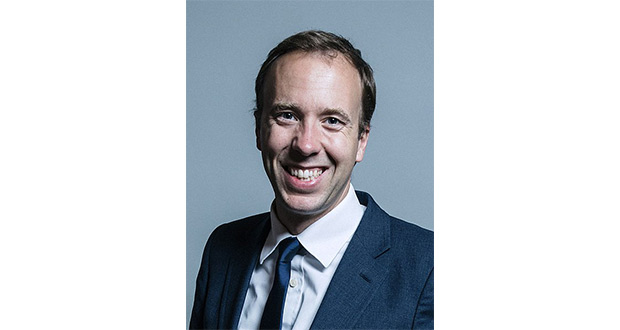New National Academy To Drive Forward Social Prescribing Projects
 Patients with long-term health problems will benefit from a new independent National Academy for Social Prescribing, which will support local healthcare professionals in prescribing of arts, sport and leisure activities to more people across the country.
Patients with long-term health problems will benefit from a new independent National Academy for Social Prescribing, which will support local healthcare professionals in prescribing of arts, sport and leisure activities to more people across the country.
Health and Social Care Secretary Matt Hancock will today set out his ambition for every patient in the country to have access to social prescriptions, such as art and singing classes, on the NHS as readily as they do medical care.
The Academy, backed by £5 million of Government funding and headed up by Professor Helen Stokes-Lampard, the outgoing Chair of the Royal College of General Practitioners, will share best practice, develop training and accreditation and improve the evidence base for social prescribing. It has been developed in partnership across government, with Sport England, Arts Council England and a range of voluntary sector partners.
This will support the NHS Long Term Plan’s commitment to refer at least 900,000 people to social prescribing within five years, with the help of 1,000 new social prescribing link workers who will be in place by 2020/21.
Health Secretary Matt Hancock said:
“This Academy is much more important than any one individual. It’s about all of us in health, arts, culture, sport, communities coming together around one simple principle: that prevention is better than cure
“Social prescribing is a huge part of this. There are thousands of people up and down the country right now who are already benefiting from activities like reading circles, choir groups and walking football.
“The National Academy for Social Prescribing will act as a catalyst to bring together the excellent work already being done across the NHS and beyond, building on our NHS Long Term Plan’s ambition to get over 2.5 million more people benefitting from personalised care within the next five years.”
Alongside the benefits for patients, the National Academy for Social Prescribing also has the potential to ease the burden on the NHS.
Only 60% of Clinical Commissioning Groups (CCGs) use social prescribing for patients with anxiety, mental health problems and dementia but in some parts of the country patients with long term conditions who have had access to social prescribing link workers have reported to be less isolated, attended 47% fewer hospital appointments and made 38% fewer A&E attendances.
Heading up the new Academy, Professor Helen Stokes-Lampard, who will step down as Chair of the RCGP in November, said:
“I’m thrilled to have been appointed as Chair of this new Academy. Social prescribing has always been so close to my heart as a practicing GP. It’s what good GPs have always done in terms of getting the best help and support for our patients beyond the medicines we also provide them with.
“I’m looking forward to starting work with colleagues from so many sectors to bring social prescribing into the mainstream, to train and educate social prescribers of the future and to establish a great evidence base and raise the profile of this fantastic initiative.”
The National Academy for Social Prescribing will work to:
- Standardise the quality and range of social prescribing available to patients across the country
- Champion the benefits of social prescribing by building and promoting the evidence base
- Develop and share best practice, as well as looking at new models and sources for funding
- Bring together all partners from health, housing and local government with arts, culture and sporting organisations to maximise role of social prescribing
- Focus on developing training and accreditation across sectors
James Sanderson, Director, NHS Personalised Care:
“With at least one in five GP appointments being non-medical, social prescribing has helped the NHS improve the lives of tens of thousands of people.
“Social prescribing is now a vital part of the NHS Long Term Plan and this national academy is a key part of that.”
The Loneliness Strategy committed to every eligible patient in the country having access to a social prescribing connector scheme by 2023. The NHS Long Term Plan included plans to recruit over 1,000 trained social prescribing link workers by 2020/21 with the aim that over 900,000 people are able to be referred to social prescribing schemes by then.
Jo Churchill, Minister for Primary Care, Public Health and Prevention said:
“The role social prescribing can play in keeping our nation healthy should not be underestimated. It can keep people better engaged in being healthier, happier and participating more in their communities, while potentially reducing the need to see a GP.
“This Academy shows our commitment to developing the evidence base, raising awareness, and encouraging the uptake of social prescribing as part of the wider prevention agenda to ensure people live healthier lives for longer.”





